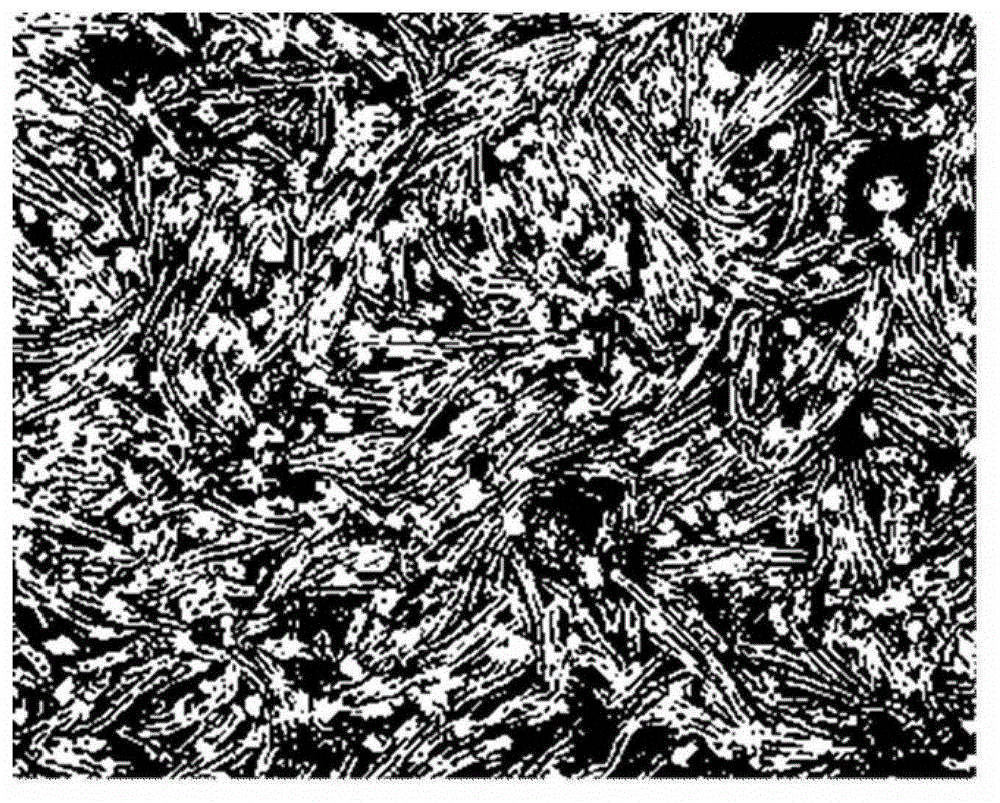Method for efficiently separating and expanding mesenchymal stem cells in human umbilical cord blood
A technology for stem cells and human umbilical cord blood, which is applied in the biological field to achieve the effect of improving purity and efficiency and realizing large-scale expansion
- Summary
- Abstract
- Description
- Claims
- Application Information
AI Technical Summary
Problems solved by technology
Method used
Image
Examples
Embodiment 1
[0022] Example 1: Coating cell culture plates
[0023] Laminin (Laminin; BD Bioscience, CA) and gelatin protein (Gelatin; BD Bioscience, CA) were diluted 2 mg / ml according to the instructions. After mixing according to the volume ratio of 1:2, transfer to the cell culture plate and place at room temperature for 1 Hour. Under sterile conditions, it can be stored at 4°C for 3 months.
Embodiment 2
[0024] Example 2: Isolation and Expansion of Umbilical Cord Blood Mesenchymal Stem Cells
[0025] The umbilical cord blood collected under sterile conditions was mixed and diluted with cells in α-MEM at a volume ratio of 1:1, mixed with 5g / L methylcellulose at a ratio of 4:1, and allowed to stand for 30 minutes to settle red blood cells. Aspirate the supernatant, after centrifugation, use PBS to make a single cell suspension, superimpose on the lymphocyte separation medium Ficoll-Hypaque with a relative density of 1.077, centrifuge at 2500rpm for 20min, take the interface layer, add PBS to make a single cell suspension, and wash by centrifugation .
[0026] Since Ficoll-Hypaque has a specific gravity of 1.077 g / ml, which is heavier than monocytes but lighter than erythrocytes, monocytes can be separated from residual erythrocytes. Pure mononuclear cells can be collected at the interface level.
[0027] Dilute the obtained mononuclear cells with PBS, centrifuge at 2000rpm for...
Embodiment 3
[0031] Example 3: Cell surface antigen characterization of cultured mesenchymal stems
[0032] In order to confirm that the above-mentioned cells have the characteristics of surface antigens of mesenchymal stem cells, the cell surface was analyzed using FACs. The results are shown in Table 1.
[0033] Table 1
[0034] indicator
[0035]Table 1 shows that for the stem cells isolated and cultured in the present invention, CD34, CD45 and CD3 are negative, while CD73, CD105 and CD90 are positive. This result indicates that the cells isolated and expanded in the present invention are mesenchymal stem cells.
PUM
 Login to View More
Login to View More Abstract
Description
Claims
Application Information
 Login to View More
Login to View More - R&D
- Intellectual Property
- Life Sciences
- Materials
- Tech Scout
- Unparalleled Data Quality
- Higher Quality Content
- 60% Fewer Hallucinations
Browse by: Latest US Patents, China's latest patents, Technical Efficacy Thesaurus, Application Domain, Technology Topic, Popular Technical Reports.
© 2025 PatSnap. All rights reserved.Legal|Privacy policy|Modern Slavery Act Transparency Statement|Sitemap|About US| Contact US: help@patsnap.com

